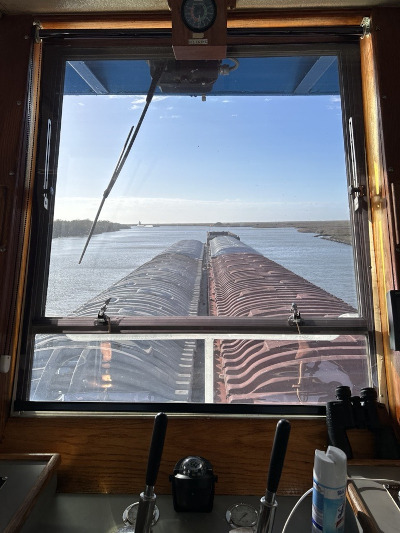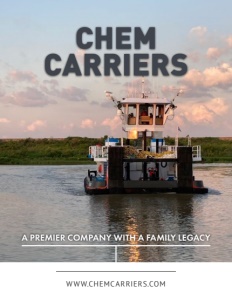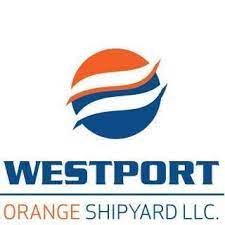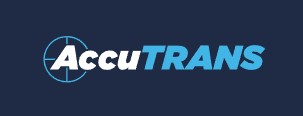Chem Carriers
Chem Carriers; A premier company with a family legacy
Providing first-class marine transportation of liquid cargoes, Chem Carriers charts a leading course
Nick Kohnke, Director of Marketing for Chem Carriers, a maritime transportation company located in Sunshine, Louisiana, on the Lower Mississippi River, exults over the importance of barge traffic as a leading transportation option within the U.S. economy.
“The Mississippi River Valley drains almost 40% of the United States,” he reports. “It touches and/or includes 32 states and two Canadian provinces. It’s probably the greatest natural highway for the transportation of goods coming in and goods going down the river for export, or across the United States. And barges are the most cost-effective and safest mode of transportation there is. That’s why it’s the backbone of the U.S. transportation system.”
While Kohnke’s characterization of the tugboat, towboat, and barge industry might be a tad excessive – trucks carry the largest share of freight in the U.S., followed by rail – barge transportation is ideal for carrying seaborne cargo to inland destinations, as well as providing a critical role in the export of agricultural goods from the American heartland to points around the globe.
However, Kohnke is spot on regarding the barge industry’s well-deserved reputation for efficiency. A typical inland barge has a capacity 15 times greater than one rail car, and 60 times greater than one semi trailer-truck. “And a single barge requires only a gallon of fuel to move one ton of cargo 647 miles,” he adds. “A truck would only go 145 miles.” And as far as safety goes, Executive Vice President, Jeff Norgress provides the following statistic: “One barge injury equals 96 freight rail injuries and 1,145 freight truck injuries,” he suggests.
Overall, there is no doubt that the tugboat, towboat, and barge industry does play a significant role in the movement of cargo throughout the country, employing about 270,000 people who operate some 5,000 tug and towboats and over 33,000 barges on 12,000 miles of rivers, canals, and inland waterways.
The single largest commodity that moves on these waters is petroleum – about 250 million tons annually. Twenty percent of the nation’s coal is moved on the water, as well as 60% of its grain exports. The sector contributes over $30 billion to the GDP annually, which is expected to grow to $40 billion over the next several years.
A family company grows

Frank Banta Jr (left), Robert Banta (right), Frank Banta Sr (Center)
Chem Carriers was founded in 1994 by Frank Banta, a third-generation towboat pilot.
“His grandfather worked in the Atchafalaya (the Atchafalaya Basin is the nation’s largest river swamp, containing almost a million acres of bottomland hardwoods) bringing logs out and then he moved onto the river,” says company COO (and Banta’s son-in-law), Ben Hays. “His grandfather had three sons who all worked in the industry, as well. Frank became a towboat pilot; worked for his family company; worked tows up north; then came back to the family.”
When the young Banta suggested that the company should own its barges and not just boats, his father encouraged Frank to go into business for himself. “He bought his first used barge in 1992 and started working the liquid chemical trade,” Hays continues. “He bought two more barges in 1994. In 1998, he was up to 11 barges.”
In the aftermath of Hurricane Katrina, which battered southern Louisiana in 2005, there was an industry-wide shortage of boats that could move his barges. So, Frank followed the family tradition and bought two boats from his dad and uncles’ company.
“That’s when we started to become a full-service, liquid transportation company,” says Norgress. In 2008, the company started building its boats and a year later it began building larger barges capable of handling 30,000 barrels of liquid cargo (BBL). “That helped us diversify and gave us the ability to network our equipment and better utilize it,” Kohnke adds.
Today, Chem Carriers have over 100 employees, 13 towboats – the last two of which were built by the company, itself – and 52 inland tank barges: 31- 10,000 BBL, and 21- 30,000 BBL that deliver approximately four million tons of cargo per year. It focuses its operation on the Gulf Coast, moving liquid cargo from port to port, mostly to terminals, but sometimes to ships, between Corpus Christi, Texas, and New Orleans. The firm also has a 174-barge-capacity fleeting, or parking, service located at the left descending bank at mile 207 on the Lower Mississippi River near Plaquemine.
“We have a base office just south of Baton Rouge in Sunshine, LA, and we have five onsite people in Houston now in maintenance and operations,” Hays adds. “75% of our equipment is in the Houston area, or on a job that starts or ends in Houston. So we’ve been growing and expanding our footprint little by little, mostly in the Gulf South, but we have been known to go further up north and we have some barges up north right now.”
A cyclical industry requires smart management
According to Kohnke, the barge industry is cyclical with ups and downs that sometimes mirror the fluctuation in oil and gas prices but sometimes do not. And he gives Banta credit for a steady growth strategy that has kept the company on an even keel over the years. “Several things can affect the barge market,” he explains.
“So Frank, slowly and over time, put an emphasis on paying down debt and making sure we finance our equipment as much as we can, which has put us in a very stable position as opposed to some other carriers, some of which aren’t here anymore. That’s given us a strong financial footing and allowed us to do things the way Frank wanted to do them. Slow growth; not getting over our skis and paying off equipment have helped us survive some of the downturns.”
The most recent downturn the company has had to face was during the COVID pandemic. “Vessels were shutting down and we were not getting many employees through the door,” recounts Norgress.
“We weren’t able to move people from deckhand to tankerman to the wheelhouse because we weren’t employing enough people. (A tanker man oversees liquid cargo transfer aboard oceangoing tank ships or inland barges. The position requires additional training and credentialing to handle the transfer of dangerous substances.) So it did slow down the company. It’s picking up slowly and we’re now able to hire more people to move through the system.”
New hires will be necessary to operate the two new boats that are coming online – one this December, and one in the first quarter of 2024. “Those two boats coming out give us a lot of flexibility,” says Hays. “They’re strong enough to move a couple of 30ks, but small enough to where we can put them into place as harbor tows.”
Good partners and suppliers are important
 As is true in any industry, high-quality suppliers and trustworthy partners are key to Chem Carriers’ continued success. For example, vital to the company are its relationships with various firms that offer tankerman services.
As is true in any industry, high-quality suppliers and trustworthy partners are key to Chem Carriers’ continued success. For example, vital to the company are its relationships with various firms that offer tankerman services.
Norgress explains: “When you’re discharging or loading a barge, or two barges at a time, the Coast Guard requires you to have a shore tankerman. We only have a certain amount of crew that are tankermen and they’re going to load or discharge one barge. So we need another tanker to come out. Without those guys, we would be in a bind. They play a key role for us.”
Some shoreside tankerman companies that Chem Carriers deals with include Accutrans, Inc., Team Services, Petro-Chem Services, LLC, and Loadstar, “We try to be friends with everybody,” says Hays, “So whenever we’re in a different region, there’s someone we can call.” Other important industry partners include the Steiner, Rouse’s, Coating Systems and Supply, Verret, VLS, C&C, and Westport Orange shipyards; Main Iron Works, a tug constructor and refurbisher; and Cooper Consolidated, which works in tandem with Chem Carriers to provide fleeting services for the lower Baton Rouge area
Finally, another key relationship is with Laborde Products, a commercial engine distribution company that supplies the towing fleet with its Mitsubishi diesel engines. “We’re repowering three of our older vessels with their engines,” says Norgress. “And all of our new builds were powered with Laborde products. They have been very good partners for us.”
The engines that power towboats are regulated by the Environmental Protection Agency (EPA), which has adopted multiple tiers of emission standards to reduce diesel pollution. Tier 1 standards were phased in from 1996 to 2000; the more stringent Tier 2 standards took effect from 2001 to 2006; and even more stringent Tier 3 standards were phased in from 2006 to 2008. Currently, Tier 4 diesel engine standards are the strictest EPA emissions requirement for off-highway diesel engines.
This requirement regulates the amount of particulate matter (PM), or black soot, and nitrogen oxides (NOx) that can be emitted from an off-highway diesel engine; all of which makes barge transport one of the cleanest and most environmentally-friendly modes of freight transportation in the United States. “We started at Tier 1; now we’re at Tier 3 and 4,” Hays notes.
Future success assured
As to the future, Kohnke says he is looking for a new home for fleets in the Houston area, while also finding ways to improve upon the company’s high standards for sustainability and efficiency. In that regard, all of Chem Carriers’ vessels are RCP-Certified. The Responsible Carrier Program (RCP) is a registered trademark of the American Waterways Operators, Inc. (AWO), the tugboat, towboat, and barge industry’s advocate, resource, and united voice for safe, sustainable, and efficient transportation on America’s waterways, oceans, and coasts. The AWO’s RCP program is intended to improve marine safety and environmental protection in the industry by establishing preferred industry operating principles and practices as voluntary standards for tugboat and towboat companies.
In addition, Kohnke says that the current barge market is favorable for his company. “We’ve seen a lot of consolidation in the market; companies buying other companies, so there aren’t as many companies in the liquid barge market as there used to be,” he relates. “That gives us a distinct advantage.”
Kohnke mostly attributes the continued success of Chem Carriers to its founder, Frank Banta, and the Banta family legacy. “Frank grew up on boats with his father, who also grew up on boats with his father,” he says in conclusion.
“It’s truly a family that grew up on the water, operating boats and barges. So, they have a unique knowledge and perspective that has guided our company. He came to this as a mariner. So, everything we do is through that prism. I think that gives us a leg up.”
AT A GLANCE
Chem Carriers
WHAT: A marine transportation company
WHERE: Sunshine, Louisiana
WEBSITE: www.chemcarriers.com
PREFERRED VENDORS
Westport Orange Shipyard LLC. – westportorange.com
WESTPORT ORANGE SHIPYARD delivers unparalleled expertise in the maintenance of offshore and inland barges as well as inland and river towboats. One floating dry dock capable of lifting up to 30,000-barrel barges are utilized for inspection, survey, repair and painting services.
For major steel work or coatings, bargess are transferred onto land. A marine railway system totaling 1,500 feet (sections of 600 and 900 feet) along with 30 acres of stabilized land provide the capacity to simultaneously work on 15 barges.
An extensive fabrication facility with gantry cranes, panel lines and a press brake offer effective fabrication of modules for steel renewals, new construction of boats and barges. Two fully enclosed paint shops provide efficient all weather surface preparation and coating applications.
Coating Systems & Supply – www.coatingsystemsandsupply.com
Coating Systems & Supply offers a full array of coatings from numerous manufacturers. Whether you are coating ballast/void tanks, cargo tanks, hulls or superstructures, our vast selection of coating solutions are designed to meet the needs of the marine industry. Protecting your assets is our #1 goal.
Laborde Products – labordeproducts.com
Laborde Products is a renowned supplier of top-quality marine engines and cutting-edge power solutions. With a customer-centric approach and a vast array of products, the company has earned an exceptional reputation as a reliable and trusted partner in the maritime industry. With 25 years of experience, Laborde Products continues to lead the way in delivering innovative and sustainable solutions for marine applications throughout the inland waterways.
LoadStar – www.loadstarusa.com
Loadstar provides product handling and site logistics services to the refining, chemical, and marine transportation industries. We load and unload barges, railcars, and trucks; switch railcars; and operate marine docks, warehouses, tank farms, and terminals. Loadstar is proud of its role in helping Chem Carriers and our industry protect America’s economic and national security, and our way of life.
Verret Shipyard – https://www.verretshipyard.com/







